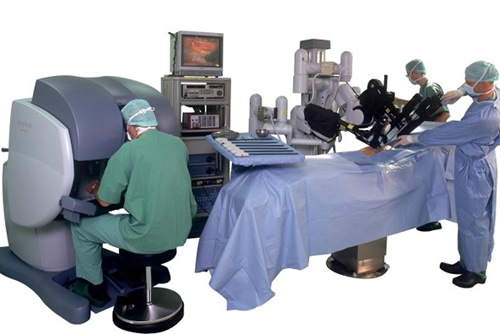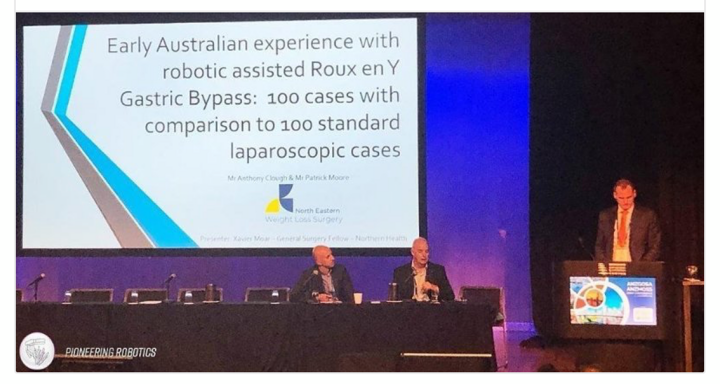
Robotic Assisted surgery is a promising new technology which may change the way bariatric surgery is performed.
In 2014 Mr Anthony Clough and Mr Patrick Moore commenced the first programme of robot assisted gastric bypass surgery in Victoria.
We were fortunate at that time to have leading world expert Erik Wilson supervise our first cases at Epworth Eastern Hospital.
Now we present results from our first 100 bypass cases and compare them to our last 100 done with conventional keyhole surgery technique.
These results were presented at the recent ANZMOSS/ANZGOSA conference in Brisbane (Oct 2-4 2019) by Fellow in Surgery Mr Xavier Moare.

The key outcomes were as follows:
- Operating time using robotic technology was about 15% longer, representing time to dock and un-dock the robotic equipment
- The most common hospital length of stay (median) with robotic assisted bypass was 4 days (including day of surgery) compared to 5 days for conventional keyhole surgery.
- Out of 100 robotic assisted cases there were 0/100 leaks and 1% early major complication rate. This compares to 1/100 leaks and 5% early major complication rate for the conventional keyhole surgery groups.
- Minor complications were higher in the robot group and this mainly consisted of more patients developing a temporary narrowing of the upper join to the pouch (stomal stenosis)
We have shown that the Da Vinci robot can be successfully and safely implemented for complex bariatric surgery in a typical Australian centre. The future is exciting for robotic surgery as technology continues to evolve.